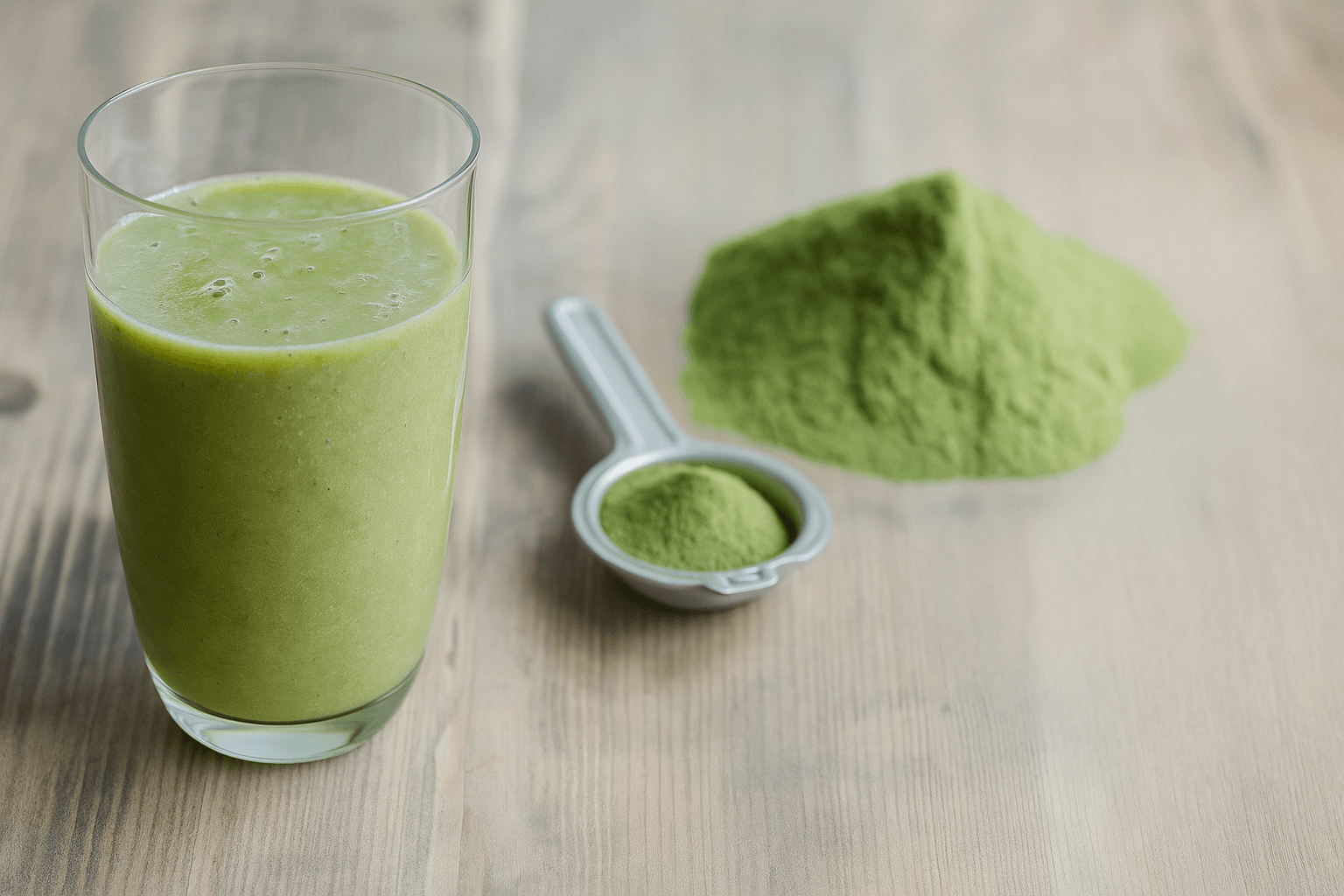Green Powders vs. Multivitamins: Which is Better for Your Daily Nutrition?
When it comes to daily nutrition, many people turn to supplements to fill the gaps in their diet. Two popular options are green powders and multivitamins. Both are designed to boost nutrient intake, but they work in different ways and offer unique benefits. Understanding the differences, benefits, and potential drawbacks of each can help you make an informed decision about which is better suited for your health goals.
What Are Green Powders?
Green powders are supplements made from a blend of nutrient-dense greens like spinach, kale, spirulina, wheatgrass, and other superfoods. These powders are typically dried and ground into a fine powder that can be mixed with water, smoothies, or juices. Many green powders also contain added probiotics, digestive enzymes, and antioxidants for enhanced health benefits.
Benefits of Green Powders:
- Rich in Micronutrients: Green powders are packed with vitamins, minerals, and antioxidants that support overall health.
- High in Phytonutrients: These supplements contain phytonutrients from plants that have anti-inflammatory and immune-boosting properties.
- Supports Detoxification: Ingredients like chlorella and spirulina help with detoxifying the body by removing heavy metals and toxins.
- Aids Digestion: Many green powders include probiotics and digestive enzymes that support gut health.
- Convenient for On-the-Go Nutrition: Simply mix with water and you have a nutrient-packed drink ready in seconds.
Drawbacks of Green Powders:
- Taste and Texture: Some people find the taste and texture unpleasant, although it can be masked in smoothies.
- Cost: High-quality green powders can be more expensive than traditional multivitamins.
- Limited Protein and Fiber: While rich in micronutrients, green powders typically lack significant amounts of protein and fiber.
What Are Multivitamins?
Multivitamins are supplements that contain a blend of essential vitamins and minerals. They are designed to fill nutritional gaps in a typical diet and come in various forms, including tablets, capsules, and gummies. Multivitamins typically focus on providing the recommended daily allowances (RDAs) for key nutrients.
Benefits of Multivitamins:
- Convenient and Easy to Take: Simply swallow a tablet or chew a gummy to get a blend of vitamins and minerals.
- Cost-Effective: Multivitamins are generally more affordable than specialized supplements.
- Targets Specific Deficiencies: Many multivitamins are designed to support specific health needs, such as prenatal vitamins or senior health blends.
Drawbacks of Multivitamins:
- Synthetic Ingredients: Some multivitamins contain synthetic forms of vitamins that may not be as easily absorbed.
- Overlapping Nutrients: If combined with other supplements, you may risk exceeding safe limits of certain vitamins and minerals.
- Lack of Whole Food Nutrients: Unlike green powders, multivitamins often lack the phytonutrients found in whole foods.
Key Differences Between Green Powders and Multivitamins:
| Feature | Green Powders | Multivitamins |
|---|---|---|
| Source | Whole foods (fruits, vegetables, algae) | Isolated vitamins and minerals |
| Additional Benefits | Phytonutrients, probiotics, enzymes | Targeted vitamin and mineral support |
| Form | Powder, mixable with liquids | Tablets, capsules, gummies |
| Taste | Earthy, sometimes bitter | Neutral, often flavored |
| Price Range | Generally higher | More budget-friendly |
How to Decide Which One is Right for You
When deciding between green powders and multivitamins, consider your primary health goals. If your focus is on getting more plant-based nutrients, antioxidants, and digestive support, green powders may be the optimal choice. For those looking to bridge nutritional gaps with convenience and cost-effectiveness, multivitamins might be more appropriate.
Scenarios to Consider:
- Active Lifestyles: If you are consistently active and need extra recovery support, green powders provide antioxidants and anti-inflammatory benefits that help with muscle recovery.
- Budget Constraints: Multivitamins are generally more affordable and accessible for daily use, making them ideal for people on a budget.
- Dietary Gaps: If you struggle to eat enough fruits and vegetables, green powders can offer a quick solution to boost your intake.
- Targeted Health Needs: Multivitamins are more focused on specific vitamins and minerals, making them ideal for people with known deficiencies.
Final Verdict: A Combination Approach?
For many people, a combination of both green powders and multivitamins can be the most effective way to meet daily nutritional needs. Green powders can provide the benefits of whole foods and digestive support, while multivitamins fill specific gaps for vitamins and minerals. Before making changes to your supplement routine, consult with a healthcare provider to tailor your choices to your unique health needs.
In conclusion, both green powders and multivitamins serve valuable purposes in enhancing daily nutrition. Choosing the right one—or a combination of both—depends on your health goals, dietary habits, and lifestyle. Whichever path you choose, prioritizing your nutrition is the first step toward better health and well-being.
Latest blog posts about Health Guides
-
Uncategorized Are Super Green Supplements Worth It? Yes — Here’s Why.

Lindsay Warner article author
May 4, 2025
-

Lindsay Warner article author
May 4, 2025
-

Greg Berkman article author
May 4, 2025





